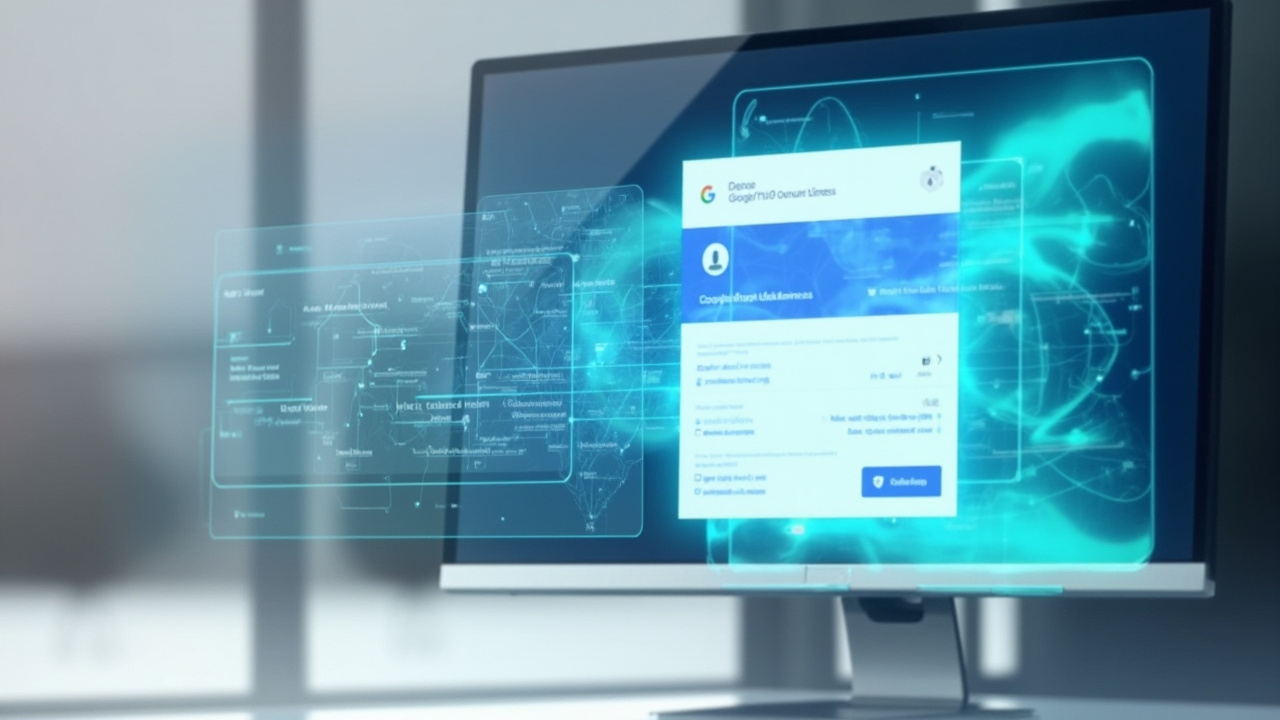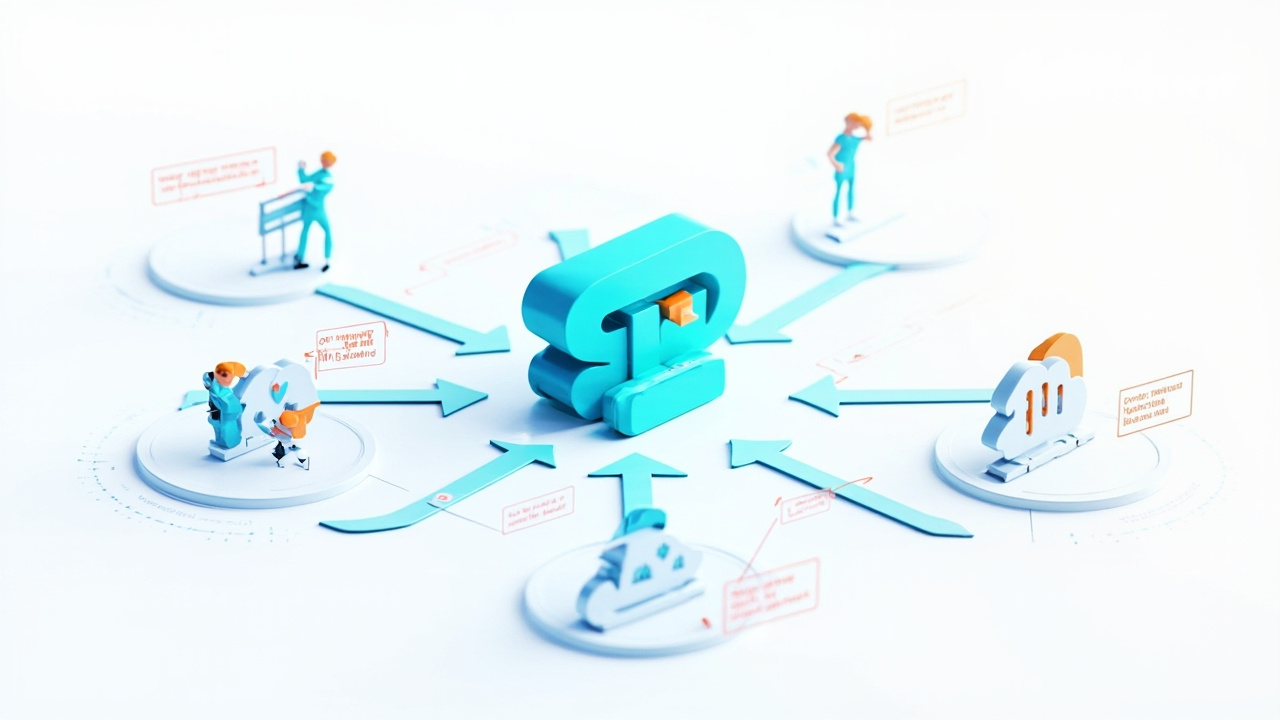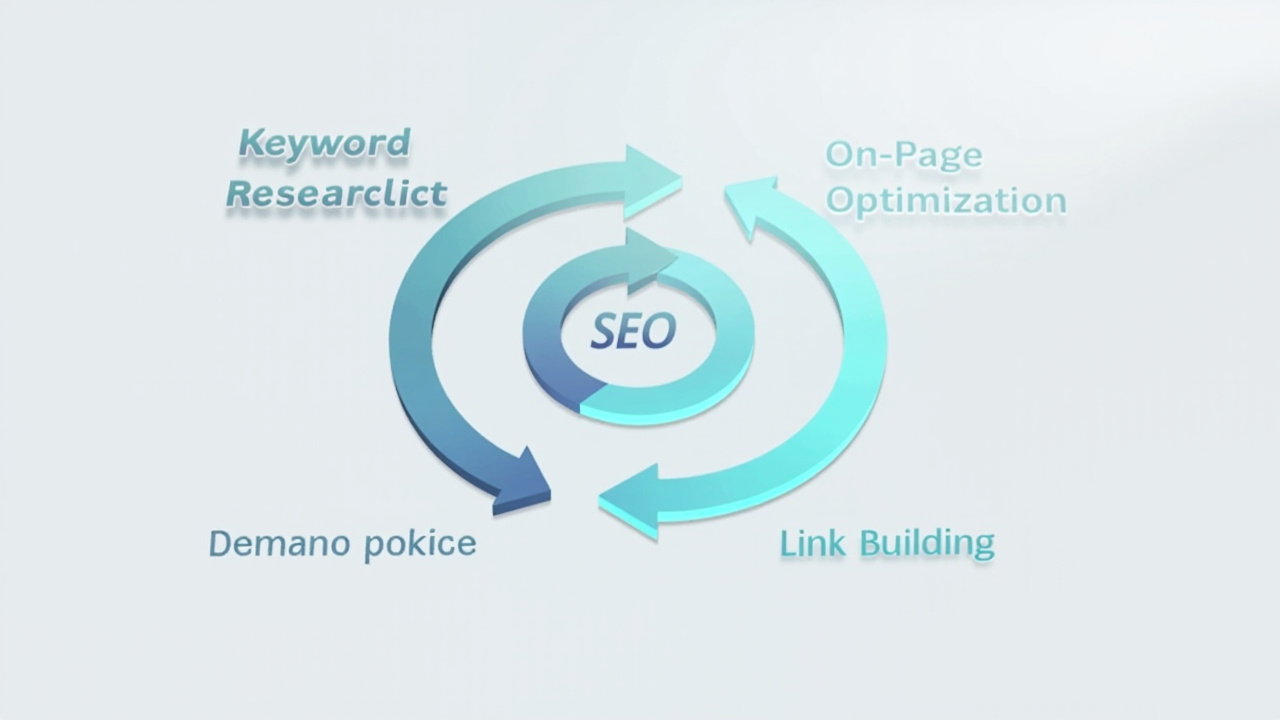In the ever-evolving digital landscape, securing a competitive edge through Search Engine Optimization (SEO) is more crucial than ever. As businesses strive to improve their online presence, the role of SEO has expanded from a simple set of rules to a dynamic strategy essential for success. But what truly constitutes an SEO advantage in today s saturated market? And how can you leverage modern tools and techniques to stay ahead?
The rapid progression of technology has transformed SEO from its humble beginnings. Understanding user intent, optimizing for voice search, and harnessing AI are just a few of the innovations driving SEO forward. Yet, the complexity of these advancements poses a significant challenge for many businesses. The stakes are high, and the need for a nuanced approach to SEO is more pressing than ever.
This blog post aims to unravel the intricacies of SEO in the modern era. We’ll delve into strategies that can propel your business to the forefront of search engine results, explore the integration of AI-powered tools like GenQE, and offer actionable insights to refine your SEO approach. Whether you’re an SEO novice or a seasoned expert, this comprehensive guide will equip you with the knowledge to harness the full potential of SEO.
The Foundations of SEO: Building a Strong Digital Presence

To achieve an SEO advantage, understanding the foundational aspects of SEO is paramount. This section will explore the critical elements that form the bedrock of an effective SEO strategy.
Understanding Search Intent
At the heart of SEO lies the concept of search intent. Understanding what users are searching for and why is crucial in crafting content that meets their needs. Search engines prioritize content that aligns with user intent, making it essential for businesses to focus on this aspect.
“Content that aligns with user intent not only enhances visibility but also builds trust with your audience.”
To achieve this, businesses must conduct thorough keyword research and analyze user behavior. Tools that provide insights into search trends and user preferences are invaluable in this regard. By aligning content with search intent, businesses can improve their relevance and authority in their field. For instance, a fashion retailer might focus on creating content around “sustainable fashion trends” if that’s what their audience is searching for, rather than just “fashion.”
Understanding search intent goes beyond just keywords; it involves analyzing the context behind a search query. For example, a query like “best smartphones 2023” likely indicates a user ready to make a purchase decision, whereas “smartphone reviews” might suggest someone in the early research phase. Tailoring content to match these intents can significantly improve engagement rates.
Furthermore, using AI tools can enhance understanding of search intent by analyzing user behavior patterns and predicting future trends. GenQE, for example, can offer insights into user interactions and help optimize content that aligns seamlessly with these insights, ensuring that businesses stay ahead in catering to evolving user demands.
Quality Content: The Cornerstone of SEO
Quality content remains the cornerstone of any successful SEO strategy. It is not just about keyword stuffing, but about providing valuable, engaging, and informative content that answers users queries. High-quality content attracts backlinks, enhances user engagement, and ultimately boosts search engine rankings.
For example, a well-researched blog post that addresses common customer pain points can significantly improve engagement and drive traffic to your site. Incorporating multimedia elements like images, videos, and infographics can further enhance the user experience and keep visitors on your page longer.
Creating quality content involves understanding your audience’s needs and preferences. For instance, if your audience is primarily visual learners, incorporating descriptive infographics and videos can make your content more digestible and engaging. Moreover, storytelling is a powerful tool in content creation. Narratives that resonate with your audience can enhance emotional connections and encourage sharing.
“High-quality content is not just about information; it s about creating a memorable experience that resonates with your audience.”
Leveraging AI in content creation can streamline the process of generating topic ideas and optimizing content for SEO. AI tools can analyze top-performing content in your niche and suggest improvements or new angles to explore. GenQE, for instance, can automate certain content optimization tasks, allowing creators to focus on crafting compelling narratives.
Technical SEO: Ensuring a Seamless User Experience
Technical SEO is often overlooked but is crucial for ensuring that search engines can easily crawl and index your site. This includes optimizing your site s structure, improving loading speed, and ensuring mobile-friendliness. With the increasing use of smartphones for internet access, mobile optimization is no longer optional.
An effective technical SEO strategy also involves ensuring secure connections (HTTPS), fixing broken links, and implementing structured data to help search engines understand your content better. These elements together create a seamless user experience that search engines reward with higher rankings.
For instance, a fast-loading website not only pleases users but also reduces bounce rates, a critical factor in SEO rankings. Optimizing images, leveraging browser caching, and using Content Delivery Networks (CDNs) can significantly improve load times.
Implementing structured data, such as schema markup, helps search engines interpret the context of your content, offering the potential for enhanced search results like rich snippets. These elements increase the visibility of your site and can drastically improve click-through rates.
“Technical SEO is the backbone of a smooth user experience and an efficient website.”
GenQE can play a vital role in maintaining technical SEO. Its self-healing automation can adapt to changes in site structure, ensuring all elements function optimally without manual intervention. This reduces downtime and ensures a seamless user experience, which is crucial for maintaining strong SEO performance.
The Role of AI in Modern SEO Strategies

As AI technology continues to advance, its impact on SEO becomes increasingly significant. This section delves into how AI can be leveraged to gain an SEO advantage.
AI-Powered Keyword Research
AI tools have revolutionized keyword research by analyzing vast amounts of data to identify high-potential keywords. These tools can tap into patterns and trends that would be impossible to detect manually. AI-driven keyword research tools provide insights into search volume, competition, and related keywords, enabling businesses to refine their SEO strategies.
For instance, AI tools can identify long-tail keywords that are not only easier to rank for but also highly relevant to user intent. By targeting these keywords, businesses can attract more qualified traffic to their sites. Long-tail keywords, such as “best vegan restaurants in Brooklyn,” are often less competitive and more specific, resulting in higher conversion rates.
AI’s ability to analyze and predict trends can also help in crafting content strategies that align with emerging searches. For example, if AI tools indicate a rising interest in “virtual reality in education,” businesses in the tech or education sector can capitalize by creating relevant content early in the trend cycle.
“AI-driven keyword research is like having a crystal ball, revealing not just what people are searching for, but what they will search for next.”
GenQE can be integrated into this process to streamline keyword analysis and ensure that content aligns with both current and predicted search trends, enhancing overall SEO performance.
Content Optimization with AI
AI is also transforming how content is optimized for SEO. AI-powered tools can analyze existing content and provide recommendations for improvement, such as keyword density, readability, and structure. These tools ensure that content is not only optimized for search engines but also resonates with readers.
Moreover, AI tools can help create personalized content experiences by analyzing user data and tailoring content to meet individual preferences. This level of personalization can significantly boost user engagement and satisfaction.
Furthermore, AI can assist in content creation by generating topic ideas, suggesting headlines, and even writing portions of the content. This reduces the time and effort required to produce high-quality content while maintaining consistency and engagement.
“AI-driven content optimization ensures your content is both search engine-friendly and reader-centric.”
For instance, tools like Grammarly use AI to suggest improvements in content clarity and tone, ensuring that your message is well-received by your target audience. Integrating AI in content optimization allows businesses to maintain a competitive edge by constantly refining and enhancing their material.
Predictive Analytics and SEO
Predictive analytics, powered by AI, allows businesses to anticipate trends and adjust their SEO strategies accordingly. By analyzing historical data and current trends, AI tools can forecast changes in search behavior and suggest proactive measures to maintain or improve rankings.
This forward-thinking approach enables businesses to stay ahead of competitors and adapt to the ever-changing digital landscape. Predictive analytics is particularly useful for seasonal businesses or those operating in fast-paced industries.
Predictive analytics can also aid in resource allocation by identifying which channels or keywords are expected to deliver the highest ROI. For example, if an AI model predicts increased search interest in eco-friendly products, a retailer can allocate more marketing budget towards promoting their green product lines.
“Predictive analytics transforms SEO from a reactive discipline to a proactive strategy.”
GenQE can support predictive analytics by continuously monitoring site performance and user behavior, allowing businesses to make data-driven decisions that enhance both SEO and user experience.
Leveraging GenQE for Enhanced SEO Performance

While AI’s role in SEO is undeniable, integrating specific tools like GenQE can provide a significant advantage. This section explores how GenQE can be incorporated into your SEO strategy.
Automating SEO with GenQE
GenQE, an AI-powered software quality and testing platform, offers unique advantages for automating SEO tasks. By automating repetitive tasks such as tracking keyword rankings and analyzing site performance, GenQE allows SEO professionals to focus on more strategic aspects of their campaigns.
This automation reduces the likelihood of human error and ensures that SEO efforts are consistent and data-driven. Additionally, GenQE’s ability to integrate with other SEO tools streamlines workflows and enhances efficiency.
For example, GenQE can automate the monitoring of site performance metrics, alerting teams to issues like slow load times or broken links before they impact user experience or search rankings. This proactive approach ensures that potential problems are addressed swiftly, maintaining site integrity and SEO performance.
Automation also allows for more precise targeting and segmentation in SEO campaigns, ensuring that efforts are directed towards the most impactful areas. This not only saves time but also maximizes the return on investment from SEO activities.
Enhancing Site Quality and User Experience
A significant aspect of SEO is ensuring a high-quality user experience, and GenQE excels in this area. Its self-healing automation capabilities can automatically adjust to changes in your website’s structure, ensuring that all elements work seamlessly. This minimizes disruptions and maintains a consistent user experience, which is crucial for SEO performance.
“With GenQE, maintaining a seamless user experience is no longer a daunting task.”
Incorporating GenQE into your SEO toolkit can lead to significant improvements in site reliability and user satisfaction. By minimizing downtime and ensuring that all site components function as intended, businesses can reduce bounce rates and improve engagement metrics, both of which are critical factors in SEO success.
Furthermore, GenQE’s integration capabilities allow for seamless collaboration with other tools and platforms, ensuring a cohesive approach to site management and optimization. This holistic strategy enhances overall site quality and user experience, contributing to stronger SEO performance.
Advanced Analytics and Reporting
GenQE provides advanced analytics and reporting features that offer deep insights into your website’s performance. These insights help identify areas for improvement and track the effectiveness of SEO strategies over time. With detailed dashboards and AI-driven recommendations, businesses can make informed decisions to enhance their SEO efforts.
The integration of GenQE into your SEO strategy ensures that your website not only meets but exceeds quality standards, ultimately leading to improved rankings and visibility. For instance, GenQE’s reports can highlight trends and anomalies that may not be immediately apparent, allowing businesses to address potential issues before they impact SEO performance.
“Advanced analytics transforms data into actionable insights, empowering businesses to continually refine their SEO strategies.”
By leveraging these insights, businesses can maintain a competitive edge and adapt to the ever-changing digital landscape. Additionally, GenQE’s reporting capabilities support data-driven decision-making, ensuring that SEO strategies are both effective and efficient.
The Importance of Local SEO in a Globalized World

In the globalized digital landscape, local SEO has emerged as a critical component for businesses aiming to attract regional audiences. This section discusses strategies for optimizing local SEO.
Optimizing Google My Business
Google My Business (GMB) is a powerful tool for enhancing local SEO. By claiming and optimizing your GMB listing, you can improve your visibility in local search results. Ensure that your business information is accurate and up-to-date, including your address, phone number, and hours of operation.
Encouraging customer reviews and responding to them promptly can further boost your local SEO efforts. Reviews not only build trust with potential customers but also influence your rankings in local search results.
For instance, a local bakery can benefit significantly from a well-optimized GMB listing. By posting regular updates, responding to reviews, and adding high-quality images of their offerings, the bakery can increase its visibility among local customers and attract more foot traffic.
Additionally, businesses should take advantage of GMB’s features, such as posts and Q&A, to engage with their audience and provide valuable information. This level of interaction not only enhances customer relationships but also signals to search engines that the business is active and engaged.
Targeting Local Keywords
Incorporating local keywords into your content is essential for capturing the attention of regional audiences. Conduct keyword research to identify terms and phrases that are relevant to your location and industry. These keywords should be naturally integrated into your website’s content, meta descriptions, and alt tags.
“Local keywords are the bridge between your business and your community.”
For example, a local gym might target keywords like “fitness classes in [City Name]” or “best gym near me” to attract potential customers searching for fitness solutions nearby. By creating content around these keywords, the gym can improve its visibility in local search results and attract more local clientele.
Local keyword targeting also involves understanding regional dialects and slang. For instance, a business in New York may use different terminology than one in Texas. Tailoring content to reflect these differences can make a significant impact on local search visibility.
Mobile Optimization for Local Search
Given the prevalence of mobile searches, optimizing your website for mobile devices is critical for local SEO success. Ensure that your site is responsive, loads quickly, and provides a seamless user experience across all devices. A mobile-friendly site not only improves user engagement but also enhances your visibility in local search results.
Mobile optimization involves more than just responsive design; it includes optimizing images, minimizing code, and ensuring fast load times. Since many local searches occur on mobile devices, a well-optimized mobile experience can significantly impact local SEO performance.
Additionally, businesses should consider implementing click-to-call buttons and easy-to-find contact information to facilitate quick interactions with potential customers. These elements enhance the mobile user experience and can lead to higher conversion rates.
Measuring SEO Success: Key Metrics and Tools

To achieve an SEO advantage, it’s vital to measure the success of your efforts accurately. This section covers the key metrics and tools to track your SEO performance.
Key SEO Metrics to Monitor
Monitoring the right SEO metrics is essential for understanding the effectiveness of your strategy. Key metrics include organic traffic, bounce rate, conversion rate, and keyword rankings. These metrics provide insights into how well your site is performing and where improvements can be made.
“Accurate measurement is the backbone of continuous SEO improvement.”
Organic traffic measures the number of visitors coming to your site from search engines, and an increase in this metric indicates successful SEO efforts. Bounce rate, on the other hand, shows how many visitors leave your site without interacting. A high bounce rate may indicate a need for better content or user experience.
Conversion rate is crucial for understanding how well your site turns visitors into customers or leads. By optimizing landing pages and calls-to-action, businesses can improve this metric. Keyword rankings highlight your site’s visibility for specific search terms, and tracking changes can help refine your SEO strategy.
Tools for SEO Analysis
A range of tools is available for conducting in-depth SEO analysis. Tools like SEMrush, Moz, and Ahrefs offer comprehensive insights into keyword performance, backlink profiles, and competitor analysis. These tools help identify opportunities and challenges in your SEO strategy.
Integrating GenQE with these tools can further enhance your analysis by providing additional insights into site quality and user experience. Together, these tools offer a holistic view of your SEO performance and guide strategic decision-making.
For instance, SEMrush can identify high-performing keywords and track competitors’ strategies, while GenQE can ensure that your site meets quality standards and offers a seamless user experience. This combination allows businesses to address both strategic and technical aspects of SEO.
Continuous Improvement and SEO
SEO is an ongoing process, and continuous improvement is crucial for maintaining an advantage. Regularly updating your content, conducting technical audits, and staying informed about algorithm updates are essential for long-term success. By embracing a culture of continuous improvement, businesses can adapt to changes and sustain their SEO advantage.
“Continuous improvement in SEO is not a destination but a journey.”
Regular content updates keep your site fresh and relevant, encouraging search engines to crawl and index your pages more frequently. Technical audits identify and resolve issues that may impact site performance, such as broken links or slow load times.
Staying informed about algorithm updates allows businesses to anticipate changes and adjust their strategies accordingly. By fostering a proactive approach to SEO, businesses can maintain their competitive edge and continue to grow their online presence.
Conclusion: Embracing the Future of SEO

In conclusion, achieving an SEO advantage in today’s digital landscape requires a multifaceted approach. By understanding foundational SEO principles, leveraging AI technologies, and incorporating tools like GenQE, businesses can enhance their online presence and drive meaningful results.
Staying ahead in SEO means embracing continuous improvement, adapting to changes, and utilizing innovative solutions. GenQE is just one of many tools that can help streamline processes and improve outcomes. By integrating these strategies into your SEO efforts, you position your business for sustained success.
“The future of SEO is bright for those who are willing to adapt, innovate, and embrace technology.”
As you embark on your SEO journey, explore the tools and strategies discussed in this article to elevate your digital presence and achieve an SEO advantage. Whether you’re optimizing for local search, enhancing content quality, or leveraging AI, the opportunities are endless.
Explore the possibilities, enhance your strategies, and transform your SEO approach today. The digital world is waiting, and with the right tools at your disposal, the sky’s the limit.
Discover More Innovative Solutions
Want to learn more about the tools and technologies discussed in this article? Explore how these innovations can be tailored to your specific needs and workflow requirements.
Our team of experts is available to answer your questions and provide personalized insights into how modern solutions like GenQE can address your specific challenges.
If the link above does not work, please visit: https://calendly.com/dm-csimplifyit/30min?month=2025-05





































